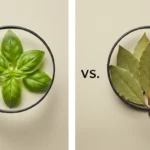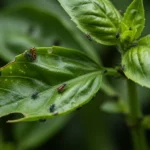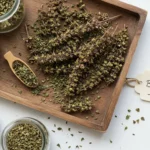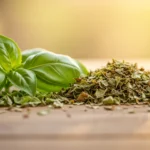Eight years ago, I, Kalsoom Imran, nearly composted my entire basil crop. A well-meaning neighbor, bless her heart, had insisted coffee grounds were the secret to lush growth. I remember staring at the wilting leaves, wondering, “Are coffee grounds good for basil plants, or was this a gardening disaster in the making?”
Understanding the Potential of Coffee Grounds for Basil
Coffee Grounds Benefit Basil: Exploring the Advantages
Okay, let’s talk about something I’ve been experimenting with in my garden – coffee grounds benefit basil. Yes, the same stuff you toss out after your morning brew. I’ve always been a bit of a thrifty gardener, and the idea of using something I’d normally discard to help my plants thrive really appealed to me.
One of the main reasons I started looking into it was the potential for free, readily available nutrients. We all know how expensive fertilizers can be, and the thought of using something that would otherwise go to waste was very tempting. Plus, I’m always looking for ways to be a bit more sustainable in my gardening practices.
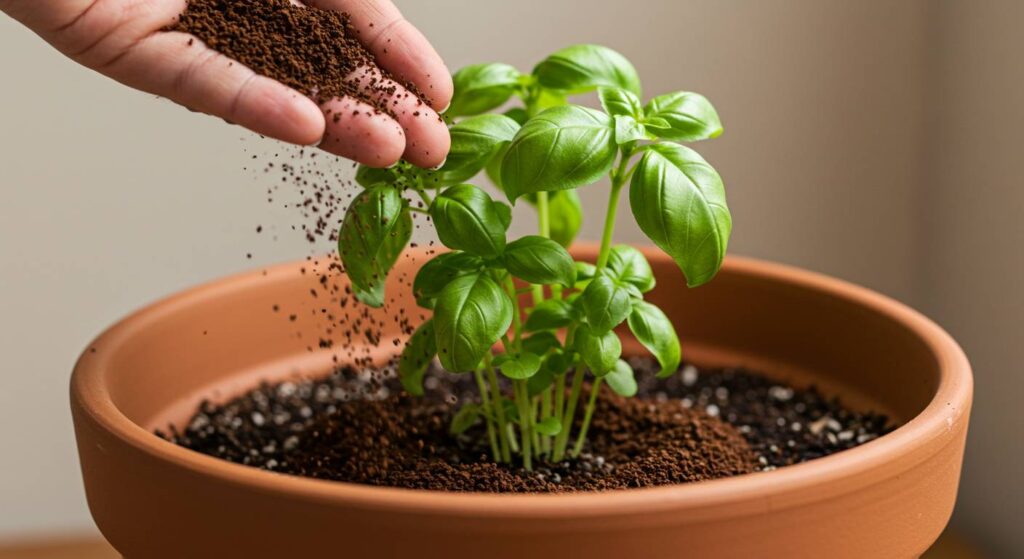
Do Coffee Grounds Help Basil? Separating Fact from Fiction
Now, I know what you might be thinking: “Really? Coffee grounds?” I had my doubts too. I’ve always been a bit skeptical of these “miracle” gardening hacks, but I decided to dig a little deeper.
The internet is full of conflicting information, so I wanted to really understand if do coffee grounds help basil, or if it was just another gardening myth. It turns out, there’s a good bit of science behind it, and it’s not just wishful thinking. I’ve seen some pretty impressive results in my garden, which has made me a believer. I’m not saying it’s a magic bullet, but it definitely has its perks.
The Science Behind Using Coffee Grounds on Basil
Coffee Grounds as Fertilizer for Basil: What to Expect
So, what exactly makes coffee grounds as fertilizer for basil a viable option? Well, it all comes down to what’s in them. After the brewing process, coffee grounds still contain a good amount of nitrogen, along with some phosphorus and potassium, which are all essential nutrients for plant growth.
These nutrients are released slowly as the grounds decompose, providing a steady source of nourishment for your basil. I like the idea of a slow-release fertilizer, it feels more natural and less likely to shock the plants.
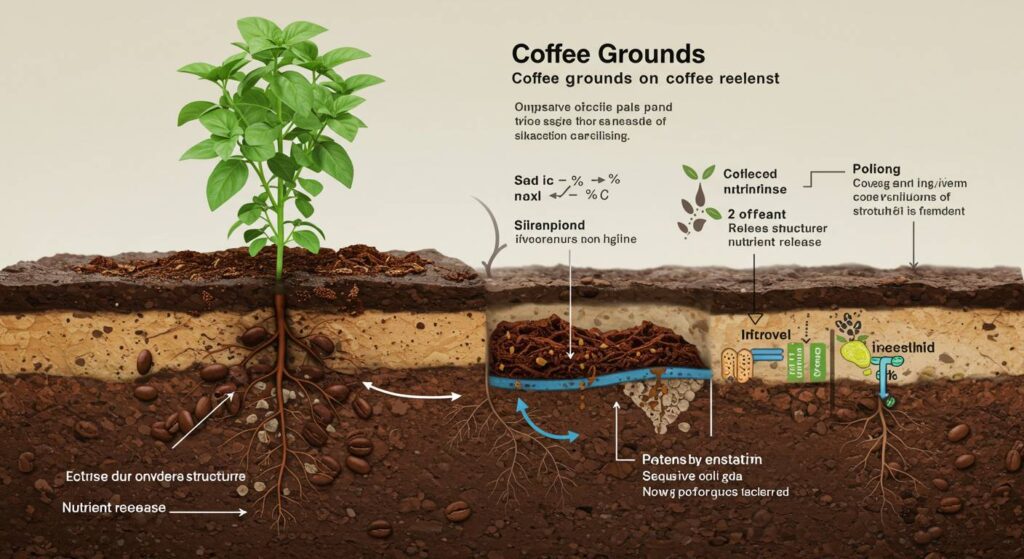
Are Coffee Grounds Good Fertilizer for Basil? Examining the Nutrients
Let’s get a little more specific about the nutrients. While coffee grounds aren’t a complete fertilizer on their own, they do provide a good boost of nitrogen, which is crucial for leafy growth. This is particularly beneficial for basil, as we’re primarily interested in its leaves.
The phosphorus and potassium contribute to overall plant health and root development. It’s important to note that the nutrient content can vary slightly depending on the type of coffee and the brewing method, but overall, are coffee grounds good fertilizer for basil? I’d say yes, they offer a good supplemental boost.
Coffee Grounds Soil Amendment Basil: Improving Soil Structure
Beyond the nutrients, coffee grounds soil amendment basil is another reason to consider using them. Coffee grounds can help improve the structure of your soil. They add organic matter, which helps with water retention in sandy soils and aeration in clay soils.
This improved soil structure creates a better environment for your basil’s roots to grow and thrive. I’ve noticed that my soil feels much more loamy and rich since I started incorporating coffee grounds into my garden.
How to Use Coffee Grounds on Basil Plants
Can You Put Coffee Grounds on Basil? Best Practices
Okay, so you’re convinced that coffee grounds might be beneficial. But how do you actually use them? The question of can you put coffee grounds on basil is a valid one. You can’t just dump a pile of grounds on top of your basil and expect miracles.
The key is to use them in moderation and in the right way. I’ve learned that a little goes a long way, and it’s better to start small and see how your plants respond.
How to Use Coffee Grounds on Basil: Step-by-Step Guide
Here’s my step-by-step guide on how to use coffee grounds on basil: First, make sure you’re using cooled, used coffee grounds. Don’t use fresh, hot grounds, as they can harm your plants. Next, spread a thin layer of coffee grounds around the base of your basil plant.
Don’t pile them up against the stem, as this can cause problems. Gently work the grounds into the top layer of the soil. I usually do this with my hands or a small trowel. I repeat this process every few weeks, depending on how my plants are looking.
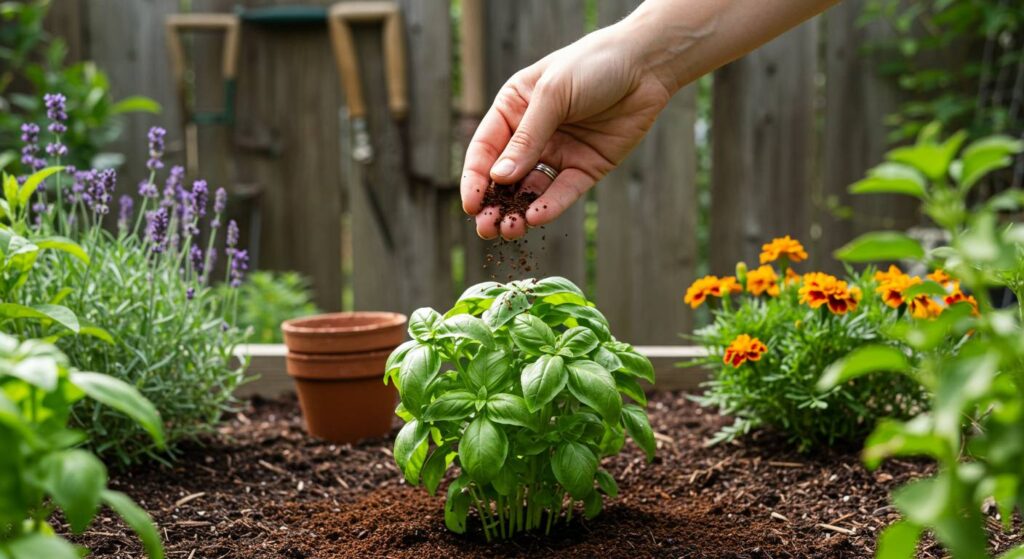
Reusing Coffee Grounds for Basil: Sustainable Gardening
One of the things I love most about this method is that it promotes reusing coffee grounds for basil. It’s a fantastic way to reduce waste and make the most of what you already have. I feel good knowing that I’m not only helping my plants but also doing my part for the environment.
It’s a win-win situation in my book. It’s also a great way to reduce the amount of waste going into landfills.
The Impact of Coffee Grounds on Basil Growth and Health
Coffee Grounds for Basil Growth: Promoting Lush Foliage
Now for the fun part: the results! I’ve seen a noticeable difference in my basil plants since I started using coffee grounds. The most obvious change is the increased lushness of the foliage.
Coffee grounds for basil growth really seems to give them a boost, resulting in more leaves and a more vibrant green color. It’s incredibly rewarding to see my plants thriving, and I attribute a good part of that to the humble coffee ground.
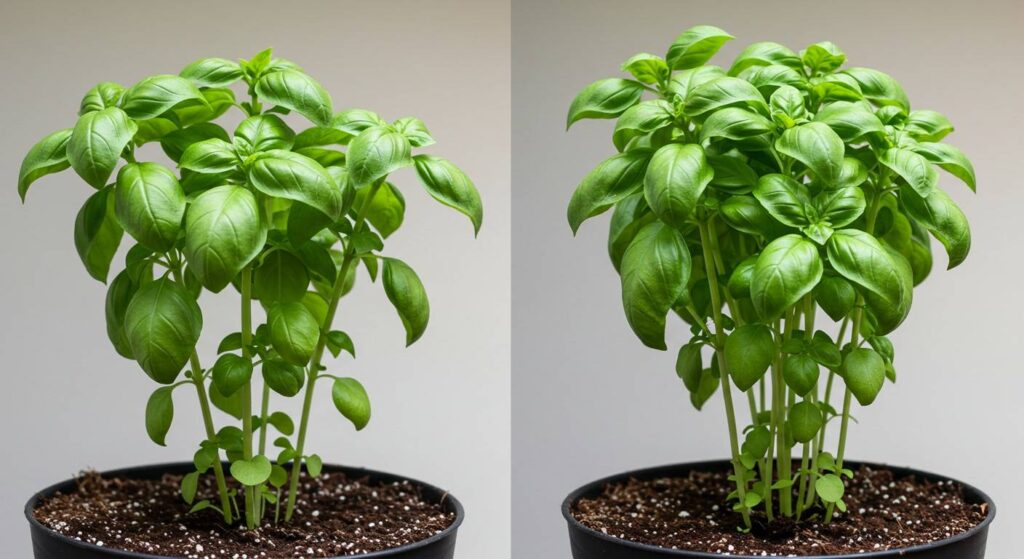
Coffee Grounds for Healthy Basil: Overall Plant Well-being
Beyond just growth, I’ve also noticed an improvement in the overall health of my basil plants. They seem more resistant to pests and diseases, and they just look generally happier.
Coffee grounds for healthy basil seem to contribute to a more robust plant, capable of withstanding the usual garden challenges. I’m convinced that the slow-release nutrients and improved soil structure play a significant role in this.
Basil Growing with Coffee Grounds: Real-World Results
It’s one thing to read about the benefits, but it’s another to see them firsthand. My experience with basil growing with coffee grounds has been overwhelmingly positive. I’ve had fewer problems with yellowing leaves, and my plants are producing more basil than ever before.
I’ve even had friends ask me what my secret is! It’s a simple technique, but it has made a big difference in my garden.
Addressing Concerns and Potential Drawbacks
Coffee Grounds Effect on Basil: Potential Issues to Consider
While I’m a big advocate for using coffee grounds, it’s essential to be aware of potential issues. The coffee grounds effect on basil can be negative if not used correctly. One common concern is that coffee grounds are acidic, and while that’s true, the acidity is usually neutralized during the brewing process.
However, if you use too much, or if your soil is already acidic, it could potentially cause problems. It’s always best to monitor your plants and adjust your approach as needed.
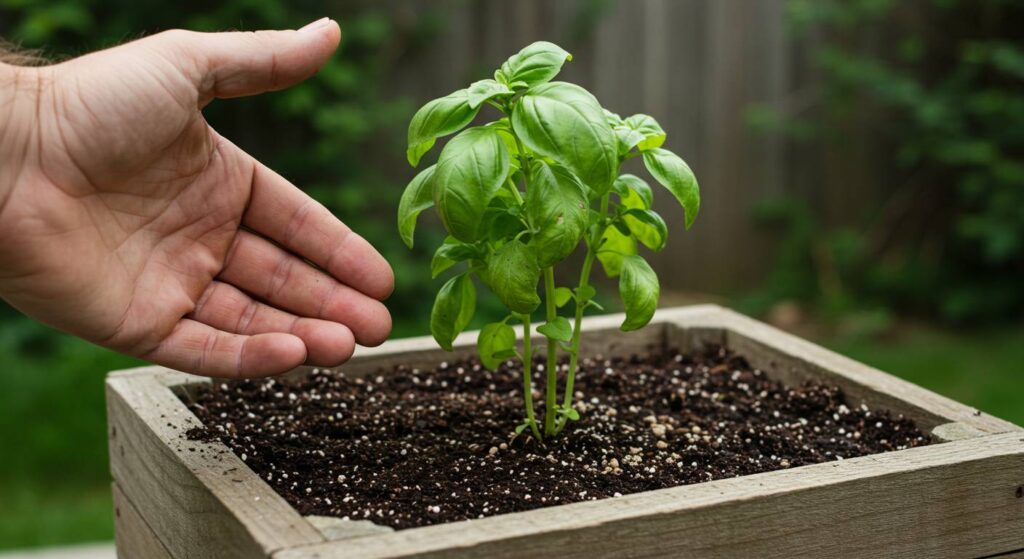
Is Coffee Grounds Good for Basil Plant? Avoiding Common Mistakes
The key to success is to avoid common mistakes. One of the biggest errors is using too many coffee grounds at once. This can lead to a build-up of nitrogen, which can actually harm your plants.
Another mistake is not mixing the grounds into the soil properly. If they just sit on top, they can form a crust that prevents water from reaching the roots. So, is coffee grounds good for basil plant? Yes, but only if you use them wisely.
Composting and Other Methods for Using Coffee Grounds with Basil
Composting Coffee Grounds for Basil: Enhancing the Benefits
If you’re not comfortable using coffee grounds directly in your garden, composting is another great option. Composting coffee grounds for basil allows the grounds to break down further, releasing nutrients more slowly and reducing the risk of any negative effects.
I often add my coffee grounds to my compost bin along with other kitchen scraps and yard waste. It’s a great way to enrich the compost and create a nutrient-rich amendment for my garden.
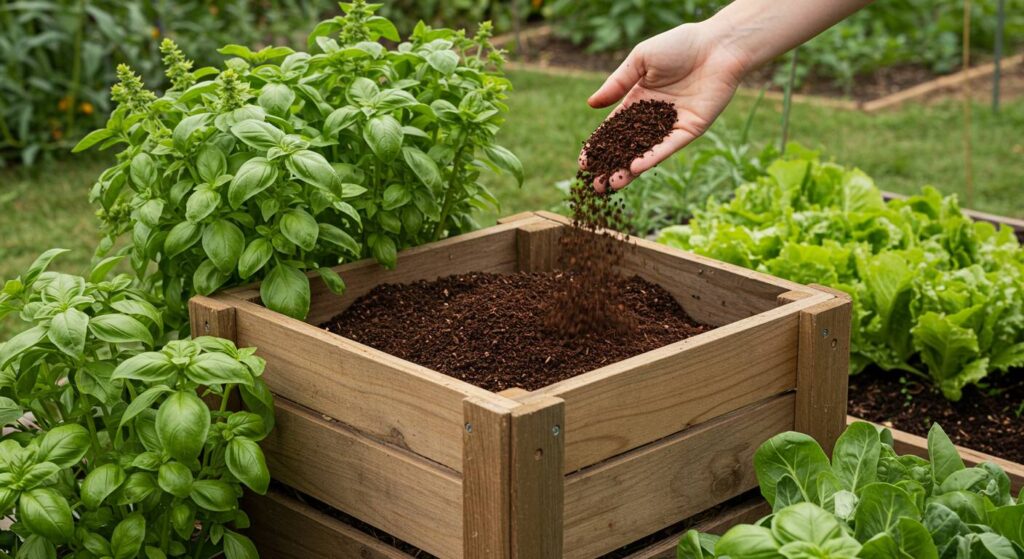
Natural Fertilizer for Basil Coffee: Alternatives and Combinations
While coffee grounds are a great natural fertilizer, they’re not the only option. I often combine them with other natural fertilizers, such as compost and how to fertilize basil naturally, to provide a more balanced nutrient profile.
Natural fertilizer for basil coffee can be a great addition to your arsenal of gardening techniques. I’ve found that a combination of different methods works best for me, providing my plants with everything they need to thrive.
Basil Plant Care Coffee Grounds: Incorporating Coffee Grounds into Your Routine
Coffee Grounds for Basil Care: A Holistic Approach
Using coffee grounds is just one part of a holistic approach to basil care. It’s important to also provide your plants with adequate sunlight, water, and well-draining soil.
Coffee grounds for basil care should be seen as a supplement to good overall care, not a replacement for it. I like to think of it as one piece of the puzzle in creating a thriving garden.
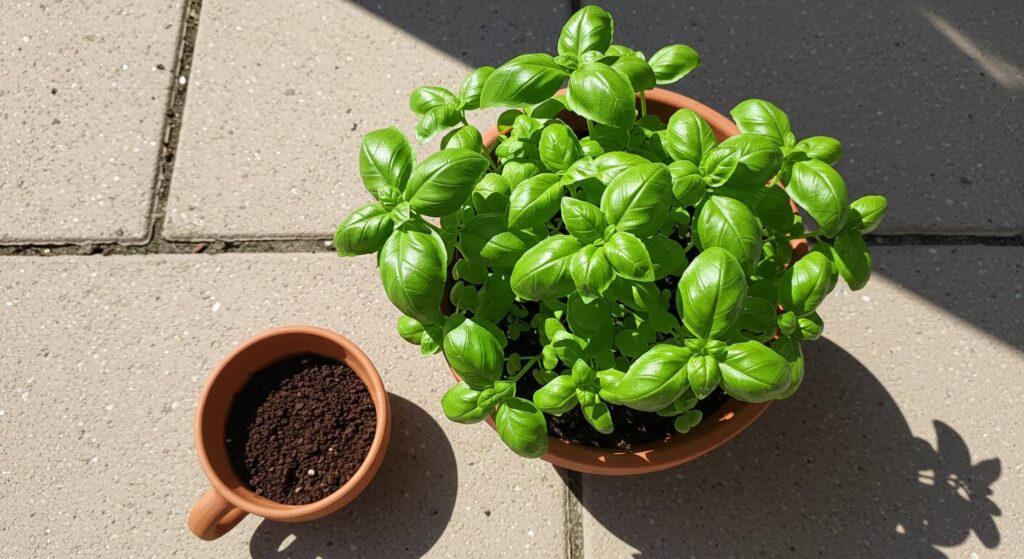
Benefits of Coffee Grounds for Basil: A Summary
So, let’s recap the benefits of coffee grounds for basil. They provide a slow-release source of nitrogen, improve soil structure, promote lush foliage, and contribute to overall plant health. They’re also a sustainable way to reuse a common household waste product.
While it’s important to be mindful of potential drawbacks, when used correctly, coffee grounds can be a valuable tool for any gardener looking to grow healthy, vibrant basil. I hope my experience has encouraged you to give it a try! You might also consider if tomato fertilizer on basil is a good idea. Or even if does basil like epsom salt.
